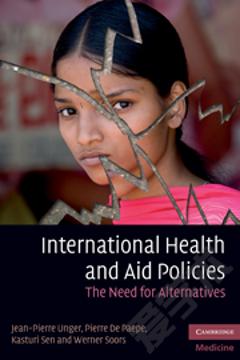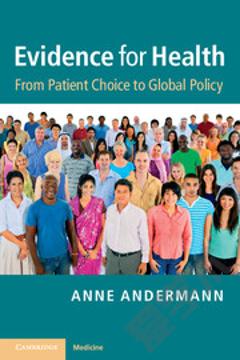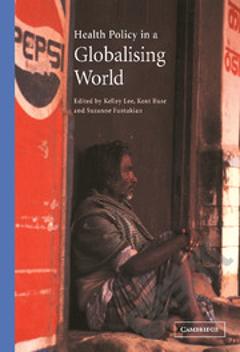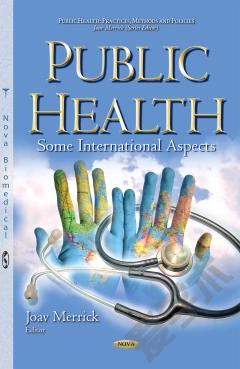International Health and Aid Policies: The Need for Alternatives
Introduction: overview and purpose Part I. Aspects of International Health Policies: 1. Donor led policies: analysis of an underlying doctrine 2. The Achilles heel of international health policies in low and middle income countries Part II. The Failure of the Aid Paradigm: Poor Disease Control in Developing Countries: 3. Why do disease control programs require patients in publicly-oriented services to succeed in delivering? The case of malaria control in Mali 4. How do disease control programs damage health care delivery in developing countries? 5. Privatization (PPM-DOTS) strategy for tuberculosis control: how evidence based is it? Part III. International Health Policies and their Impact on Access to Health Care in Low and Middle Income Countries: Some Recent Experiences from Latin America: 6. Costa Rica: achievements of a heterodox health policy 7. Colombia: in-vivo test of health sector privatization 8. Chile's neo liberal health reforms: an assessment and a critique Part IV. Determinants and Implications of New Liberal Health Policies: the Case of India, China and the Lebanon: 9. Political and economic determinants of health: the case of India 10. An economic insight into health care in six Chinese counties: equity in crisis 11. Health care financing and delivery in the context of conflict and crisis: the Lebanon Part V. Principles for Publicly-Oriented Health Care Policies, Planning, Management and Delivery: 12. Paradigm shifts Section 1. The need to alter health systems missions Section 2. The need to change public health methods 13. Principles for an alternative social and democratic health policy 14. Quality standards for health care delivery and management in publicly-oriented health services 15. Principles of publicly-oriented health planning 16. A code of good practice for the management of disease control programs Part VI. Strategies to Develop Publicly-Oriented Health Systems and Services: 17. Person-centered care in LIC/MIC publicly-oriented services 18. Improving access Section 1. Access to health care (Ecuador) Section 2. Access to drugs (Senegal) 19. Non-managed care techniques to improve clinical decision making Section 1. Versatile techniques Section 2. Interface flow-process audit 20. Reorienting academic missions: how can public health departments best support access to good quality comprehensive health care? Conclusion.
{{comment.content}}








 京公网安备 11010802027623号
京公网安备 11010802027623号